
Tar and Chip Driveway Long Island

Chipseal tar chip oil stone

Chipseal tar chip oil stone
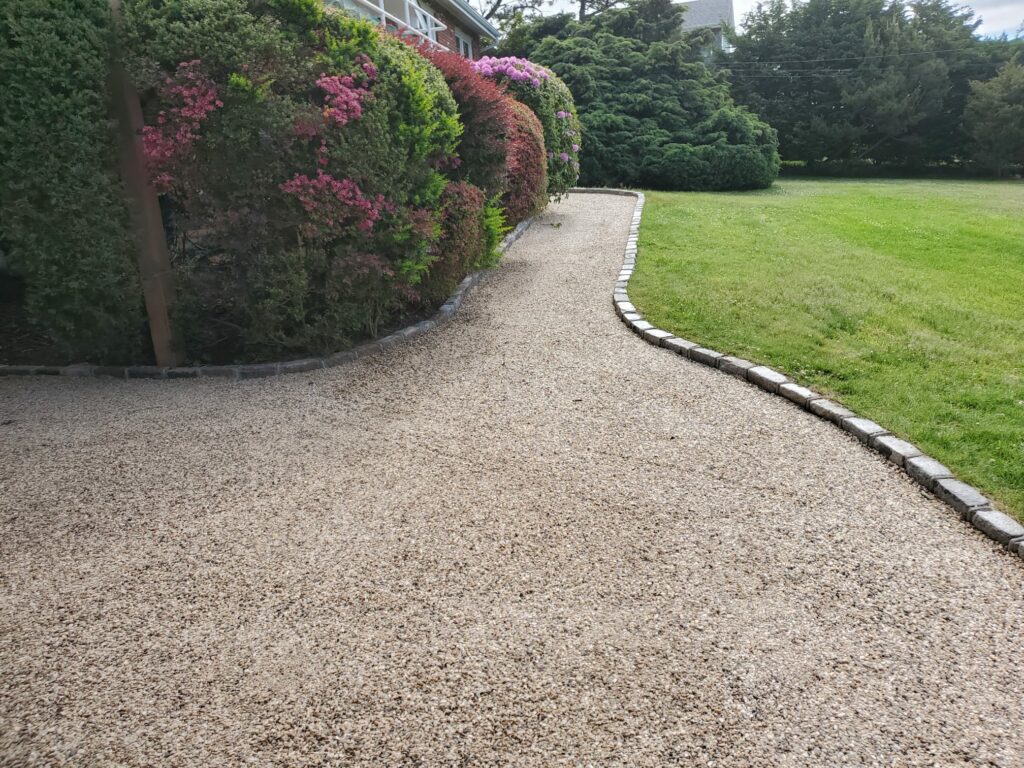
Long Island Chip Seal Driveway 4
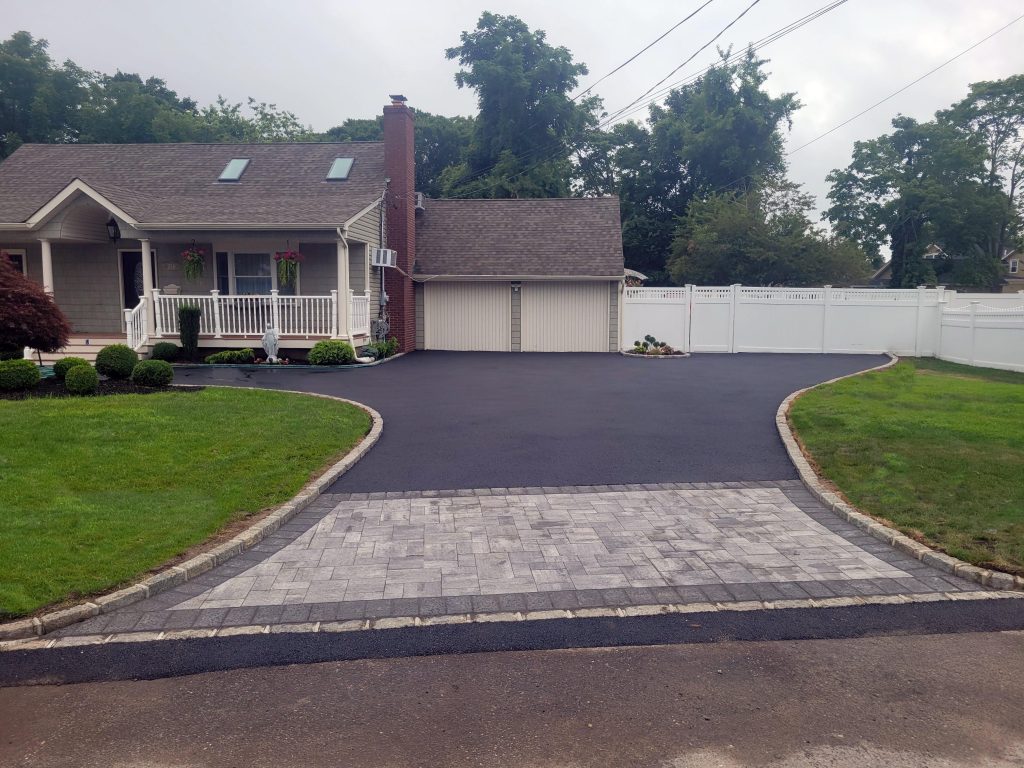
Wyandanch Asphalt Driveways Long Island
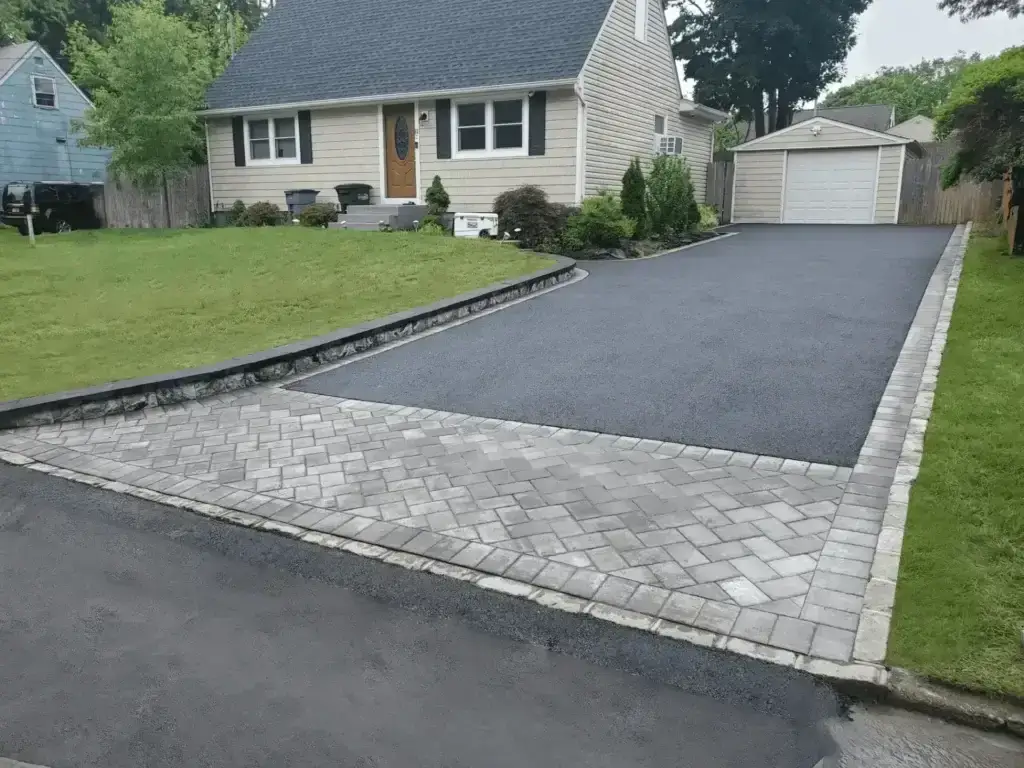
Long Island Asphalt Driveway
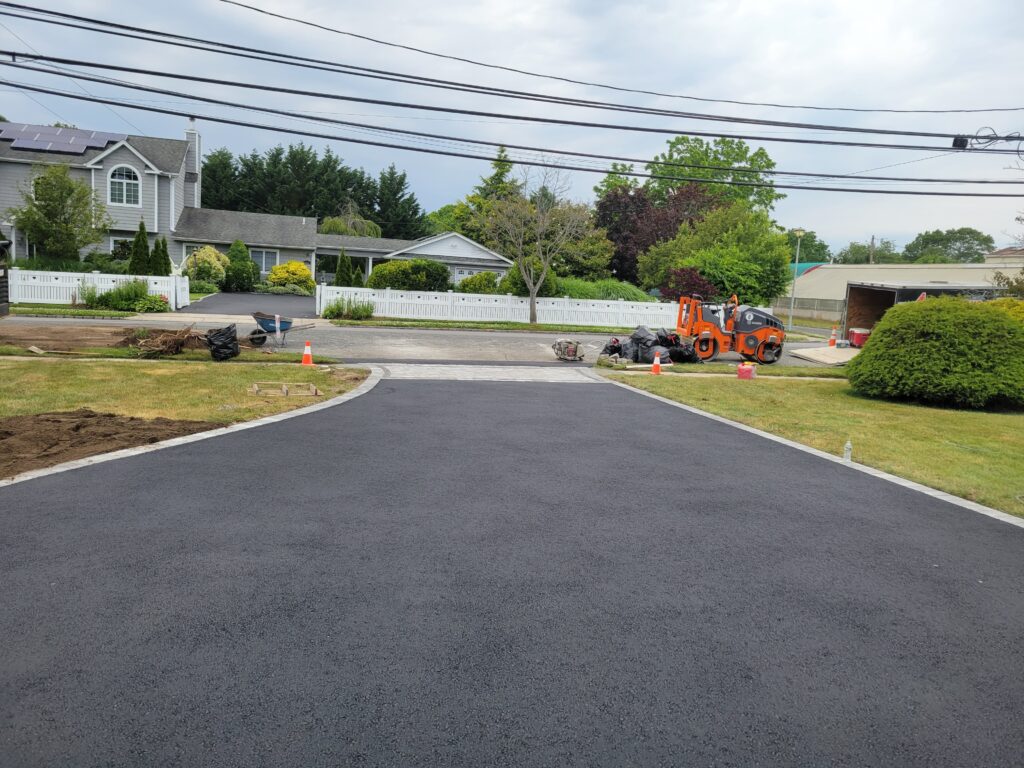
Long Island Asphalt Driveway 18
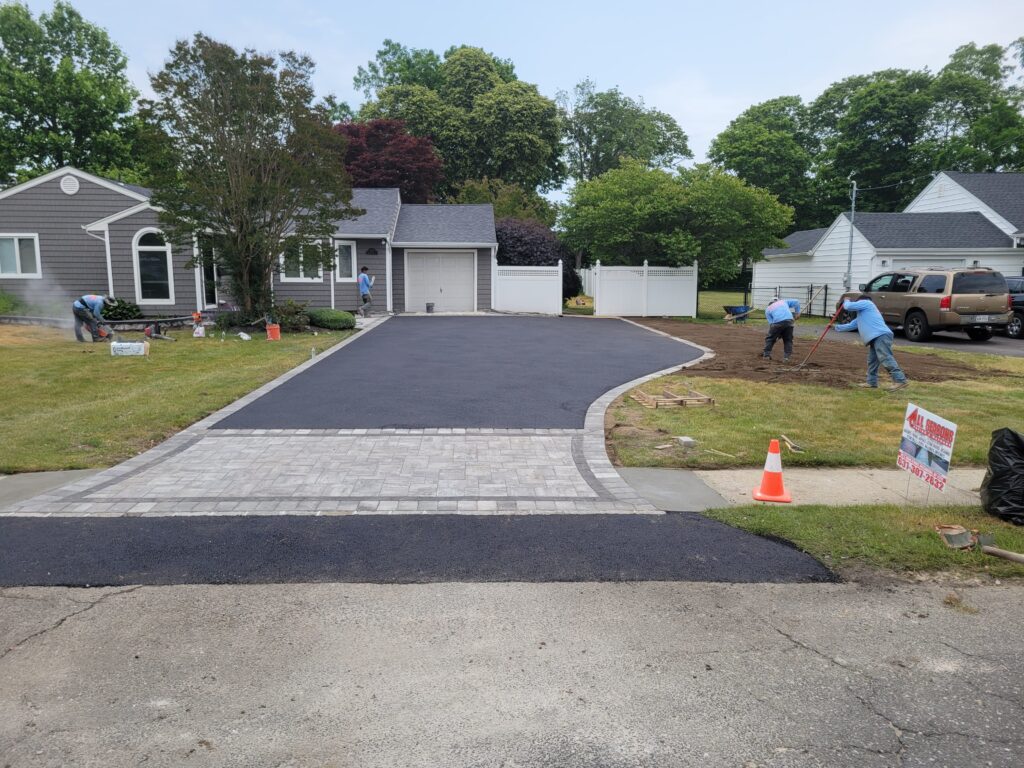
Long Island Asphalt Driveway 19
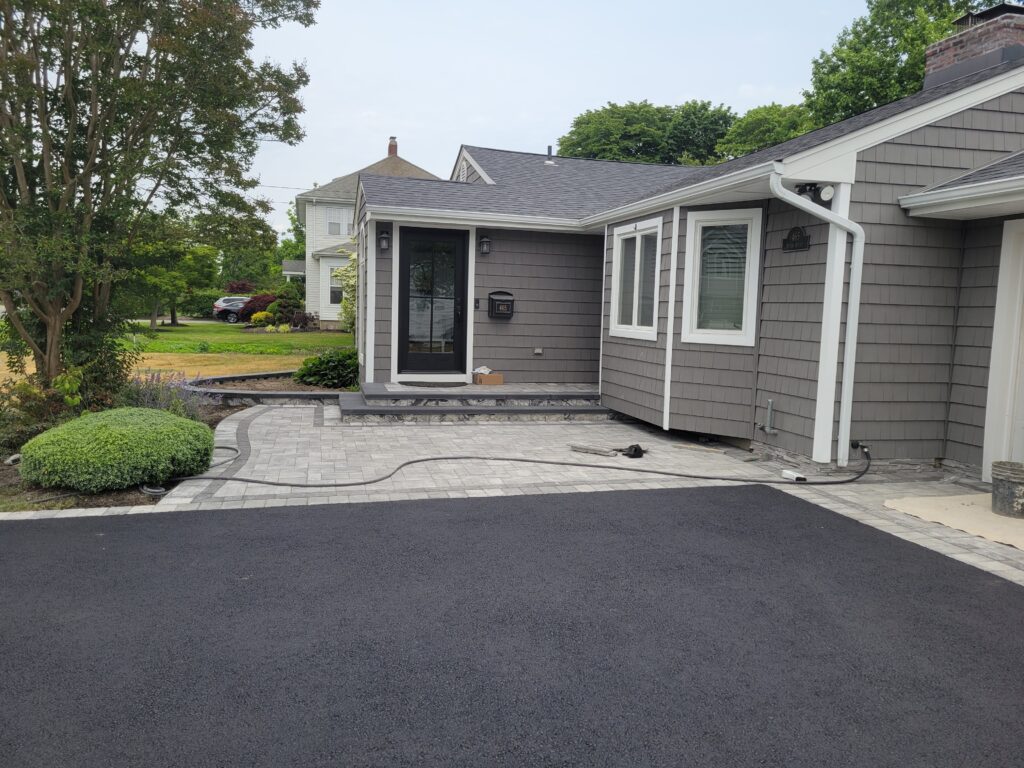
Long Island Asphalt Driveway 17
When choosing a driveway, understanding the differences between chip seal (also called tar and chip) versus asphalt is key to making the right decision for your property. Both driveway options are popular in Long Island, but they vary in look, cost of driveway installation, and maintenance.
Chip seal driveway installation involves applying a layer of hot liquid asphalt binder onto the prepared surface, then immediately spreading a layer of small, loose aggregate chips on top. These chips are pressed into the binder to create a textured, rustic driveway finish. This method provides good traction and is often praised for its natural, gravel-like appearance. It’s an affordable driveway option that’s commonly used on residential properties.
In contrast, asphalt driveway installation creates a smooth, solid surface by mixing aggregates with liquid asphalt, then compacting it into a dense, uniform pavement. Asphalt offers a sleek, black finish that many homeowners prefer for its modern look. It is highly durable and performs well under heavy traffic and harsh weather, making it a great choice for long-lasting driveways.
Both chip seal and asphalt have their advantages depending on your budget, preferences, and how much driveway maintenance you’re willing to do.
Cost Comparison: Chip Seal vs Asphalt Driveway Cost
When exploring affordable driveway options, it’s important to consider both the initial driveway pricing and ongoing upkeep to find the best value for your budget.
Chip seal driveway cost is generally lower than asphalt. Because the materials and installation process are simpler, chip seal is an affordable driveway option for those on a tighter budget. Typical prices range from $1.50 to $5.00 per square foot. Keep in mind that there are many factors that influence the cost, including driveway size, site preparation, and the condition of the existing surface.
On the other hand, asphalt driveway cost tends to be higher due to the materials and labor involved in mixing and compacting the asphalt. Expect to pay between $4.00 and $6.00 per square foot for a quality asphalt driveway installation. While asphalt costs more upfront, it can provide better long-term value with proper maintenance.
It’s important to factor in driveway maintenance and repair costs when comparing. Chip seal surfaces require more frequent upkeep, including reapplication every few years to maintain protection and appearance. Asphalt, though pricier initially, usually needs less frequent sealing and can last longer before major repairs are required.
Ultimately, if you’re looking for an affordable driveway option with lower initial costs, chip seal could be the way to go. But if longevity and durability are your priorities, investing in asphalt might save money over time.
Durability and Lifespan
When choosing between chip seal and asphalt driveways, understanding how long each option lasts and how well it holds up to Long Island’s climate is essential.
Chip seal driveways typically have a lifespan of about 7 to 15 years. They offer good protection against minor wear and tear, but over time, the surface can lose chips or become rough, especially in areas with heavy traffic or extreme weather changes. Chip seal’s textured surface handles rain and ice well, providing decent traction during wet conditions.
In comparison, an asphalt driveway lifespan is usually 15 to 30 years when properly installed and maintained. Asphalt’s solid surface is more resistant to cracking and potholes caused by freeze-thaw cycles common in Long Island winters. It also withstands heavy traffic and heat better than chip seal, making it a durable choice.
Durability and Longevity at a Glance:
- Chip Seal Lifespan: 7–15 years, may require periodic chip replacement
- Asphalt Driveway Lifespan: 15–30 years with routine maintenance
- Weather Resistance: Asphalt performs better in freeze-thaw conditions
- Traffic Handling: Asphalt is better suited for heavy use; chip seal is good for light to moderate traffic
Maintenance Requirements
Maintenance is a key factor when choosing between chip seal and asphalt driveways. Each has its own needs that impact cost and convenience over time.
Chip seal maintenance is generally more frequent. To keep the surface intact and looking good, chip seal driveways require reapplication every 3 to 5 years. This process involves adding a fresh layer of asphalt binder and chips to repair worn areas and prevent water intrusion. Regular maintenance can extend the life of your driveway, but it also adds up in cost and labor over time.
In contrast, asphalt driveways typically need sealcoating every 3 to 7 years to protect against UV rays, water damage, and surface wear. Asphalt surfaces may also require occasional crack filling and patching to address minor damage before it worsens. While asphalt maintenance may seem more involved, the intervals are usually longer, and the repairs tend to be less frequent compared to chip seal.
Choosing a low maintenance driveway depends on your willingness to schedule upkeep and your budget for repairs. Asphalt often offers a better balance of durability and maintenance intervals, while chip seal suits those prioritizing lower upfront costs with more routine care.
Appearance and Aesthetics
The look of your driveway can greatly impact your home’s curb appeal, so it’s important to understand the visual differences between chip seal and asphalt.
Chip seal driveways have a distinctive, rustic appearance due to the loose aggregate chips embedded in the asphalt binder. This textured surface offers a natural, gravel-like look that some homeowners love for its charm. Chip seal also comes in various driveway colors, offering homeowners a chance to customize their driveway’s look to complement their style.
Asphalt driveways provide a sleek finish with a rich black color that complements most home styles. Asphalt’s consistent surface is sometimes preferred for its clean, professional look. Over time, asphalt can be resealed to maintain its deep color and smoothness, helping your driveway look fresh for many years.Choosing between the two often comes down to personal preference and the style you envision for your property.
Performance and Suitability
When deciding between chip seal and asphalt driveways, think about these performance factors:
Traction and Safety
- Chip Seal: Excellent traction due to its textured surface; ideal for wet or icy conditions and sloped driveways.
- Asphalt: Smooth surface offers less grip but still performs well when properly maintained.
Traffic Load
- Chip Seal: Best for light to moderate traffic; heavy turning or frequent use can cause chips to loosen.
- Asphalt: Handles heavy traffic and larger vehicles with ease, making it ideal for busy households or commercial properties.
Climate and Weather Resistance
- Chip Seal: Performs well in most conditions but can wear faster in extreme heat or freeze-thaw cycles.
- Asphalt: Superior performance in temperature fluctuations and harsh weather, reducing cracks and long-term repairs.
Chip seal is a great option if you want a budget-friendly driveway with excellent traction, good drainage, and a rustic aesthetic—perfect for lighter-use or sloped areas. Asphalt is the better choice for those seeking maximum durability, a polished look, and the ability to handle heavy traffic with minimal upkeep.
Which Driveway Is Right for You?
Choosing between chip seal and asphalt comes down to your budget, driveway usage, and style preferences. If you find yourself stuck deciding, you can turn to driveway contractors in Suffolk County for expert, informed advice.
At All Seasons Paving & Masonry, we’ve helped countless homeowners in Long Island’s Suffolk County, including Bayport, Oakdale, Huntington, East Northport, Patchogue, and the Hamptons, choose the right paving option for their property. Our team takes the time to explain every detail, so you can feel confident in your decision—whether you want the affordability and charm of chip seal driveway installation or the longevity of asphalt driveway installation. Every project is handled with precision to ensure lasting results, so you can enjoy your driveway for years.
Contact All Seasons Paving & Masonry Today
Ready to transform your property with trusted paving contractors in Suffolk County? Call us today for a free consultation and estimate. Let’s design a driveway that looks great, performs well, and stands the test of time.
Frequently Asked Questions (FAQ)
Is chip seal cheaper than asphalt for driveways?
Yes, chip seal generally has a lower upfront cost compared to asphalt, making it an affordable driveway option. However, maintenance and reapplication costs can add up over time.
How long does a chip seal driveway last compared to asphalt?
Chip seal driveways typically last 7 to 15 years, while asphalt driveways can last 15 to 30 years with proper care.
Do chip seal driveways need sealcoating?
No, chip seal driveways don’t require sealcoating since the surface is created by embedding aggregate in asphalt binder.
What are the disadvantages of a chip seal driveway?
Chip seal surfaces can lose loose chips over time, may feel rougher underfoot, and generally require more frequent maintenance compared to asphalt.
Can you put chip seal over an old asphalt driveway?
Yes, chip seal can be applied over existing asphalt if the surface is in good condition, providing a cost-effective way to refresh your driveway.
Which is better for a sloped driveway: chip seal or asphalt?
Chip seal is often better for sloped driveways due to its textured surface that improves traction and drainage.
What’s the difference between tar and chip and asphalt?
Tar and chip (chip seal) involves applying a layer of liquid asphalt with loose aggregate chips, creating a textured surface. Asphalt driveways are a smooth, compacted mix of asphalt and aggregate, offering a uniform finish.
